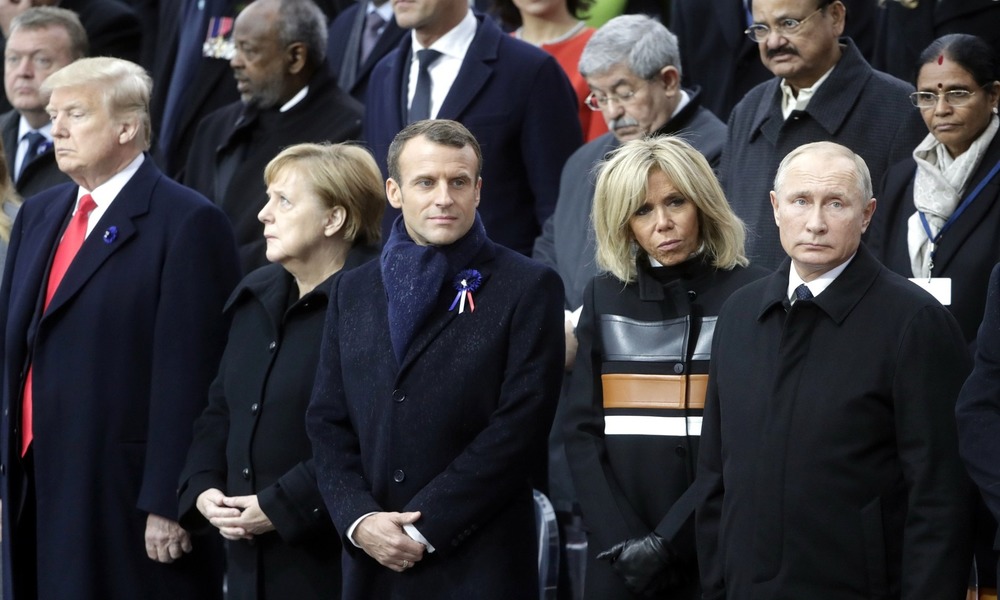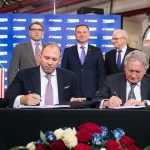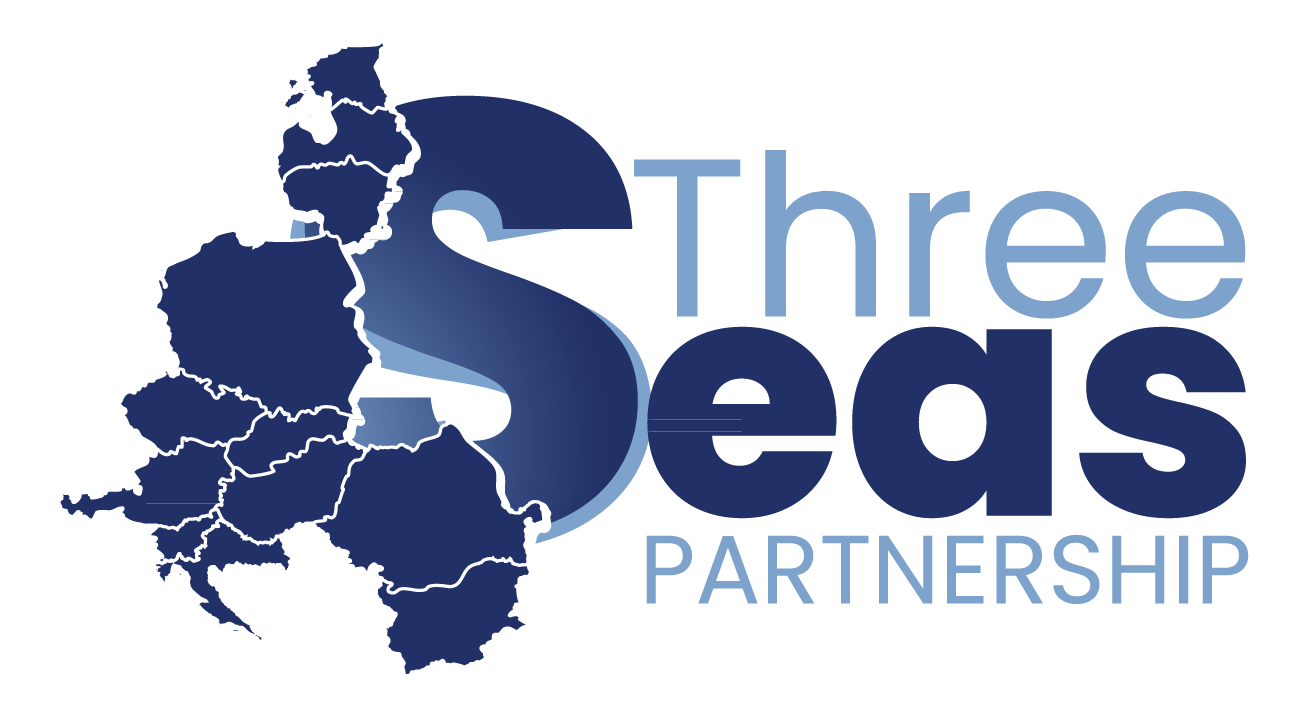RUSSIA MONITOR
Date: 14 November 2018
Putin Pleased with Macron’s Idea of Forming a European Army
Even if Russian President Vladimir Putin did not manage to hold any longer talks with his American counterpart Donald Trump during World War I centenary events in Paris, he might still consider his trip to the French capital as highly succesful. To Putin’s great satisfaction, Macron’s idea provoked a conflict within the Euro-Atlantic community whilst the notion of a unified “European army”, considered as offensive to the United States, seems like a perfect gift for Moscow as it has long sought to break the unity between Europe and its transatlantic partner, mainly in the area of defense. It is therefore to be expected that the Russians will try their utmost to feed the dispute while encouraging Paris and its European allies to push through a concept that may put an end to the existing Euro-Atlantic defense system.

On November 11, sixty world leaders gathered in Paris to attend the ceremony commemorating 100 years since the end of World War I. Nonetheless, a few weeks ahead of the meeting, it seemed to have been dominated by formal bilateral talks between U.S. and Russian presidents, as scheduled before. Nevertheless, there was no opportunity to hold such negotiations while both leaders got involved in a discussion about defense matters, which must have definitely pleased Vladimir Putin. Russian President almost immediately took advantage of the whole situation. Having arrived in Paris on November 11, he found it natural that such a powerful alliance as the European Union sought to declare its independence in the field of defense. In an interview with the Kremlin-backed RT France television, Putin added that he had been told about the idea of forming a united European army by one of the ex-presidents of France, Jacques Chirac. Russian President approved the concept of establishing a European defense, separate from any U.S. influences, while its implementation would foster the world’s multi-polarity. Interestingly, the latter notion constitutes nothing more than just a convenient slogan under which the Kremlin has long performed any actions aiming to weaken U.S. global leadership.
Putin eventually decided to speak on the matter after U.S. President Donald Trump condemned Macron’s statement, considering it as “very insulting”. In a radio interview on November 6, Macron called for the creation of a “real army” to reduce Europe’s military independence on the United States and to protect the Old Continent against “China, Russia, and even the United States”. Immediately after arriving in France, Trump met with his French counterpart, thus allegedly convincing most observers worldwide that both leaders managed to alleviate their hitherto dispute. However, on November 11, the CNN television aired an exclusive interview with the French president whose statements certainly did not appear satisfying for Donald Trump. Emmanuel Macron said he did not want the EU’s defense potential to be strengthened while increasing budgets with the aim of purchasing weapons from the United States or other countries. Such exacerbating dispute may exert a negative influence on the functioning of the North Atlantic Alliance. In response to the words of Macron, Trump again reminded that many European allies do not remain committed to spending as much on defense as they are supposed to. It does not come as a surprise that all conflicts within NATO are good news for Russia.
_________________________________
All texts published by the Warsaw Institute Foundation may be disseminated on the condition that their origin is credited. Images may not be used without permission.















